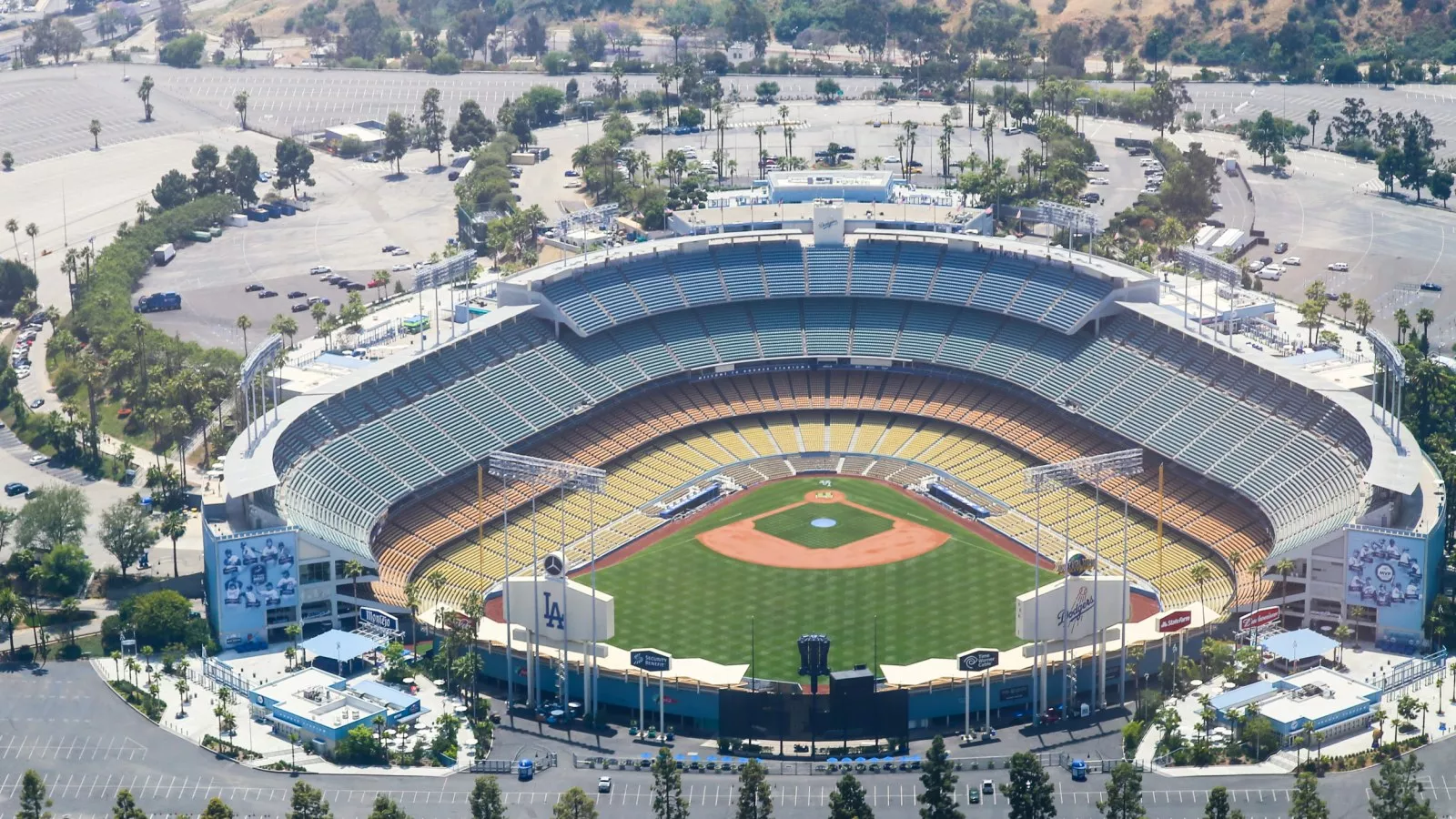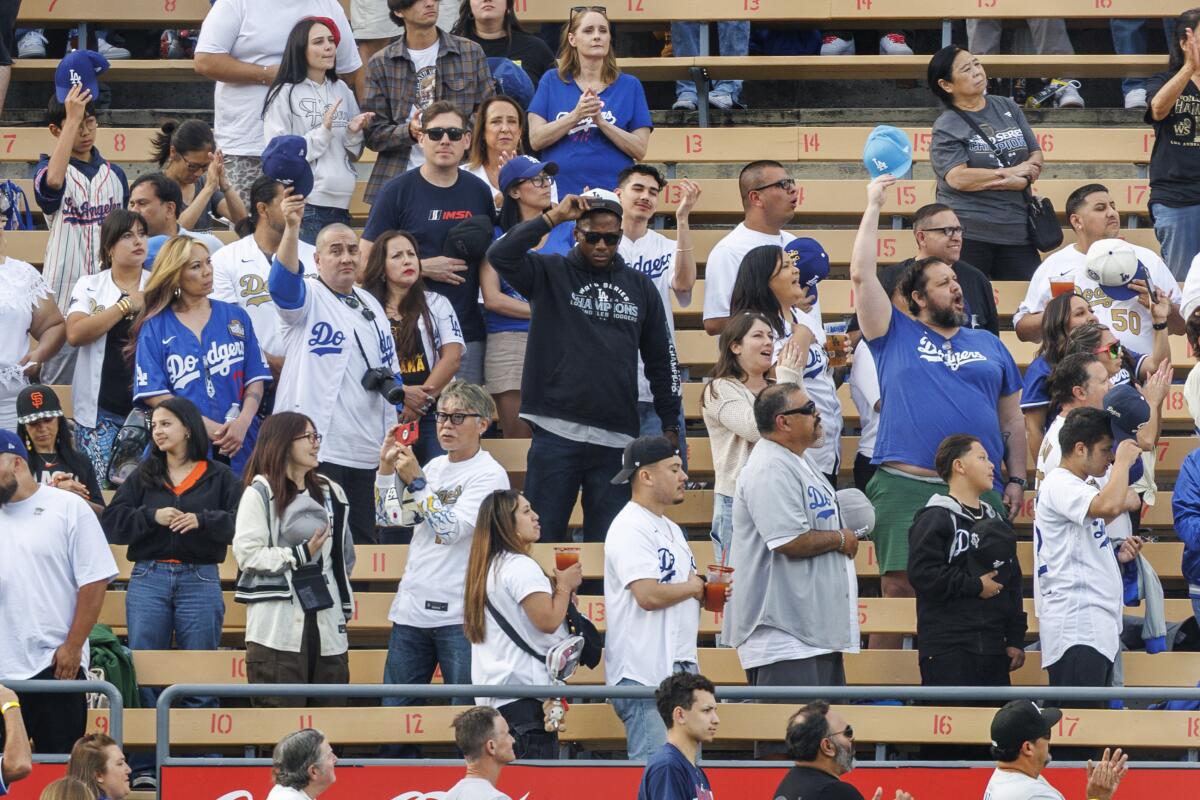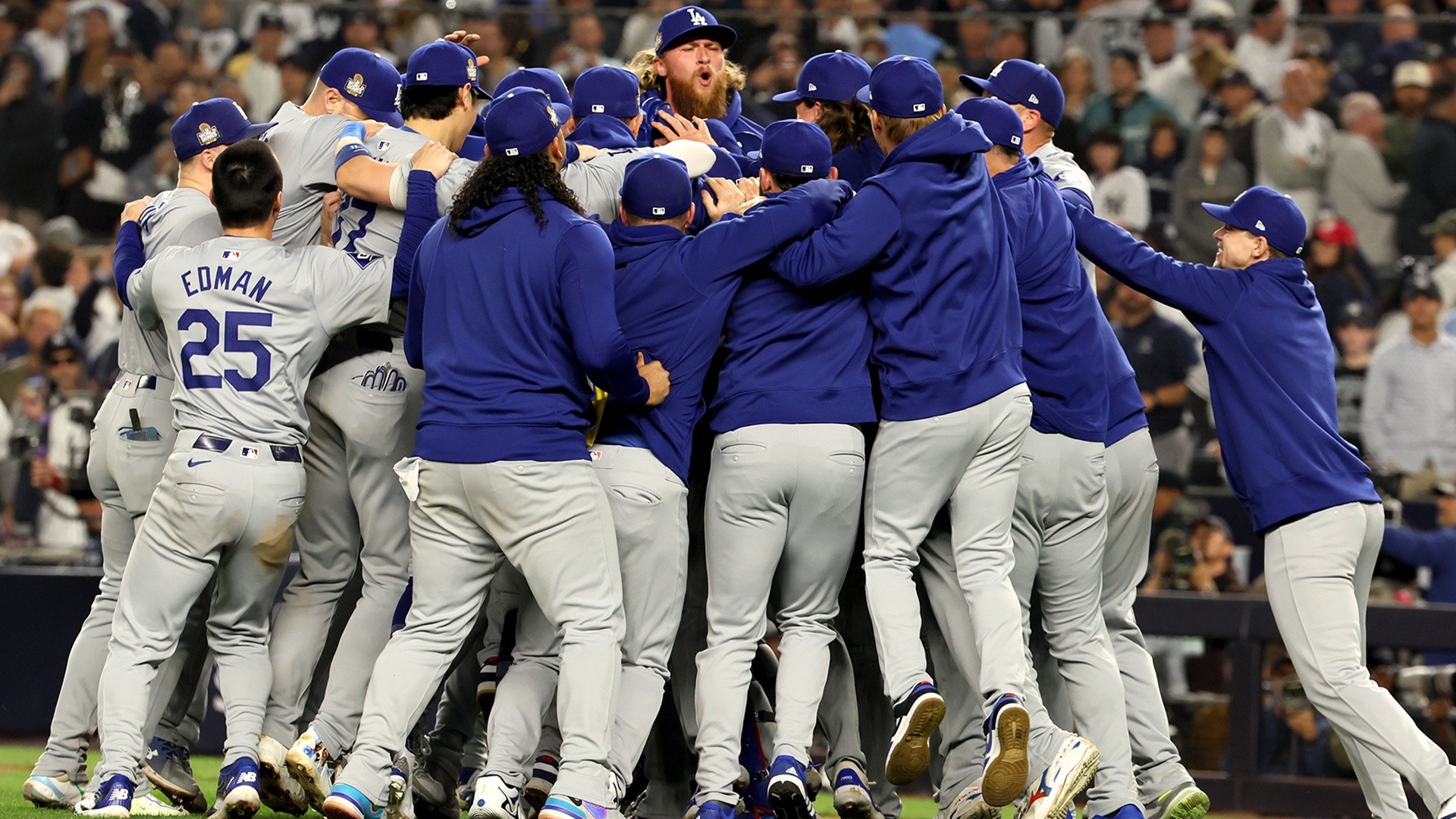
In a tense and symbolic clash between federal immigration enforcement and one of America’s most beloved sports franchises, the Los Angeles Dodgers ignited national headlines this week by publicly denying entry to federal agents believed to be with Immigration and Customs Enforcement (ICE). The incident, which took place early Thursday morning at Dodger Stadium, has added fuel to the fiery political discourse surrounding President Donald Trump’s increasingly aggressive crackdown on immigration protests and undocumented residents in Los Angeles.
According to reports, dozens of armed federal agents in tactical gear, their identities obscured by balaclavas and helmets, gathered outside the stadium and were reportedly preparing to deploy into surrounding neighborhoods. The sight of militarized officers in one of L.A.’s most iconic locations stunned many local residents and raised alarms within city government. Prompted by alerts from Los Angeles city officials, including Councilmember Eunisses Hernandez, the Dodgers organization acted swiftly.
The team issued a statement later that day clarifying that they had refused to allow ICE agents access to the property. “This morning, ICE agents came to Dodger Stadium and requested permission to access the parking lots. They were denied entry to the grounds by the organization,” the Dodgers said in a message posted to X. They added that the game scheduled for that evening would proceed as planned, offering a subtle message of continuity amidst political chaos.

The move drew both praise and scrutiny. Some interpreted the Dodgers’ decision as a rare and powerful act of defiance by a major institution against what critics have labeled an authoritarian overreach by the Trump administration. But the situation quickly became mired in conflicting narratives.
The Department of Homeland Security (DHS) issued a counterstatement claiming that the agents present were not from ICE at all, but from Customs and Border Protection (CBP), and that their brief presence had nothing to do with immigration enforcement or the Dodgers. “CBP vehicles were in the stadium parking lot very briefly, unrelated to any operation or enforcement,” the DHS insisted. ICE itself doubled down on that narrative, bluntly tweeting, “False. We were never there.”
Yet video footage and eyewitness reports seemed to contradict that version of events, with multiple news outlets, including ABC7, documenting the presence of heavily armed federal agents in the area, and describing the Dodgers’ decision as a proactive response to city warnings. While the precise identity of the agents remains contested, what is clear is that the stadium had become an unexpected flashpoint in the broader immigration battle playing out across California.
This incident unfolded amid a wider crackdown spearheaded by President Trump, who earlier this month authorized the deployment of the National Guard — reportedly without the consent of California Governor Gavin Newsom — to respond to what were initially small-scale anti-ICE protests in downtown Los Angeles. The protests, which erupted in response to a new wave of ICE raids targeting immigrant communities, quickly escalated into citywide demonstrations and then spread across the country.

Trump’s decision to pair the Guard with U.S. Marines sparked fierce backlash, with critics accusing the president of using military force against civilians in a show of political dominance.
Trump has remained unapologetic. On Tuesday night, he announced plans to send another 2,000 federalized troops to Los Angeles, a move he says is necessary to “restore order” and “protect American cities from chaos.” Conservative commentators, including Fox News contributor Clay Travis, have expressed support for these tactics.
Travis even joked that it would be “amazing” if ICE carried out a raid in the parking lot of Dodger Stadium — a comment that, in hindsight, now reads more like provocation than satire.
The Dodgers, for their part, had already been under pressure from local activists to take a stand. The team had largely remained silent on previous raids and protests. However, behind the scenes, sources say the organization had been preparing to roll out new initiatives aimed at supporting immigrant communities affected by the raids. These plans were reportedly scheduled to be announced on the same day the federal agents arrived at the stadium.

The controversy reached a fever pitch Saturday night during the team’s game against long-time rivals, the San Francisco Giants. Popular singer Nezza, who had been invited to sing the National Anthem, made waves when she chose to sing in Spanish instead of English. She later revealed that the team had encouraged her to perform the anthem in English, but she refused.
“I just felt like I needed to do it. Para mi gente,” Nezza said in a now-viral video, adding, “Safe to say I’m never allowed in that stadium ever again.” The Dodgers attempted to ease tensions, issuing a statement afterward saying there were “no hard feelings” and that they “would be happy to have her back.”
Still, the team’s relationship with its diverse fanbase — particularly the Latino community — has become more politicized than ever. Long hailed as a unifying cultural symbol in Los Angeles, the Dodgers now find themselves on the front lines of a polarizing national debate. GOP strategist Mike Madrid acknowledged the shift in tone from the franchise, noting that prior criticisms of the Dodgers’ silence may have been premature. “This is a big move by a major organization with a global brand. Haven’t seen this from any comparable entity,” Madrid wrote on social media.

For Democratic officials in Los Angeles, the standoff at Dodger Stadium is emblematic of the broader struggle between state and federal priorities. Mayor Karen Bass praised the city's efforts to reduce violent confrontations, attributing the success in part to a targeted curfew and crime prevention strategy.
“The curfew, coupled with ongoing crime prevention efforts, have been largely successful in protecting stores, restaurants, businesses and residential communities from bad actors who do not care about the immigrant community,” she said in a statement released Tuesday.
Meanwhile, the LAPD confirmed that no arrests of protesters had taken place since Saturday, a signal that the worst of the street-level unrest may have passed — at least for now. But with more troops on the way and the federal government escalating its rhetoric and actions, the confrontation is far from over.
The symbolic stand taken by the Dodgers — whether against ICE, CBP, or federal surveillance writ large — reflects a growing willingness among American institutions to wade into political territory that they might once have avoided. In the Trump era, neutrality is often interpreted as complicity, and silence can be louder than a statement.
By drawing a line at the gates of Dodger Stadium, the franchise has not only made national headlines but also forced a broader conversation about the role of private institutions in resisting or complying with federal authority.
Whether this was a one-off clash or the beginning of a larger pattern remains to be seen. But one thing is clear: Los Angeles has become ground zero for the immigration battle once again, and even baseball is no longer off-limits.



